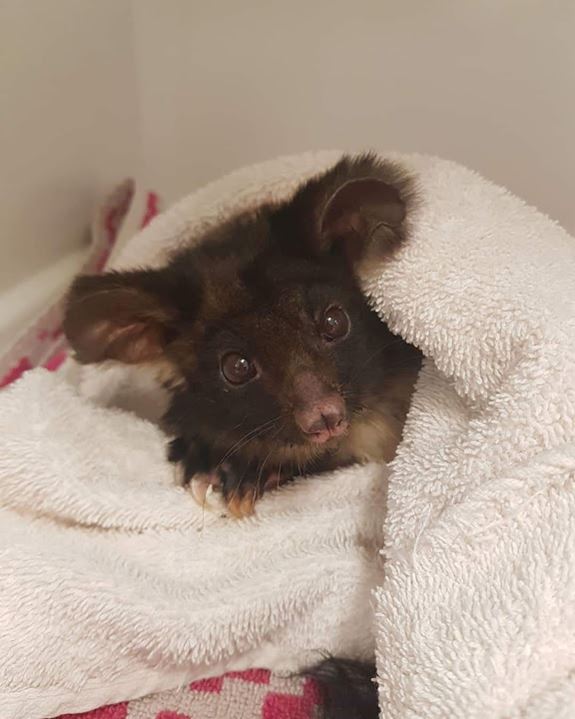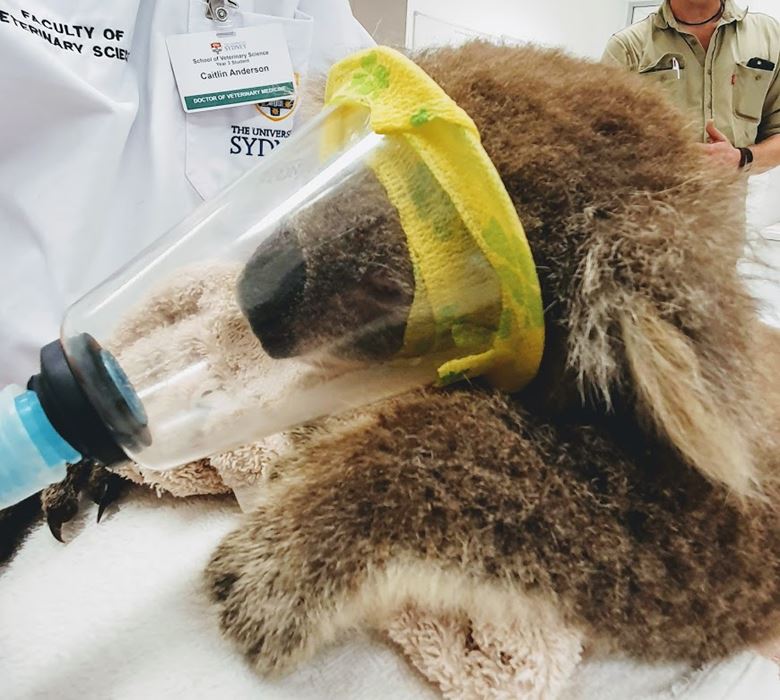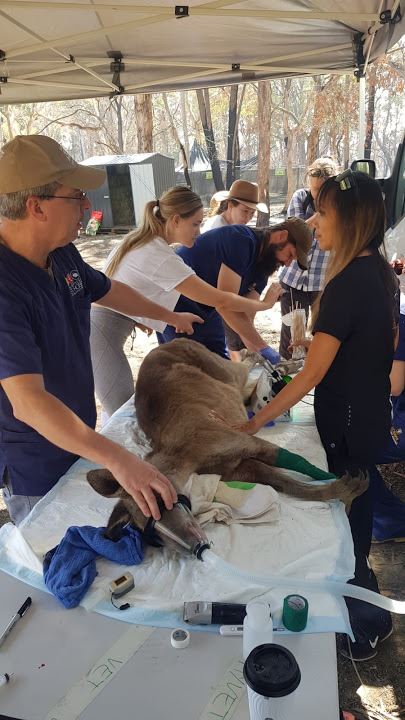
Supporting Emergency Vet Care
Wednesday, April 15, 2020
The emergency events over the last spring and summer were some of the worst ever experienced. Many vets were inundated with animals needing emergency care including the Avian, Reptile and Exotic Pet Hospital in Camden (AREPH).
WIRES is fortunate to work with many exceptional vets to rehabilitate wildlife on an ongoing basis with AREPH being one of the clinics WIRES works most extensively with in NSW. To assist with the overwhelming emergency response in January WIRES helped fund emergency care for wildlife at AREPH, where 179 native animals were treated over 12 weeks.
AREPH provided treatment for birds, echidnas, frogs, kangaroos, koalas, lizards, turtles, possums, snakes, wallabies, wallaroos and wombats.

© University of Sydney
Approximately 50% of wildlife cases in January and February were linked to the bushfires. These cases included animals treated for burns, animals treated for respiratory or a related disease, animals fleeing their habitat or injured in their habitat.
AREPH was directly involved in front line operations with WIRES attending rescue sites to provide treatment and assessments of recovering kangaroos and travelling to pick up injured animals. During these site visits research was also conducted by veterinarians from UC Davis trialling new skin graft products to improve outcomes for burns victims in various species.

© University of Sydney
AREPH launched an emergency after-hours hotline on the 17th January 2020 that ran through to the 31st March 2020 to make experienced wildlife vet advice readily available for other vets and wildlife rehabilitators during the crisis. In addition AREPH developed a professional online teaching video using our staff to teach inexperienced people how to feed koalas.WIRES are incredibly appreciative of the exceptional work that many wildlife vets and wildlife hospitals like AREPH contribute to help wildlife daily as well as during major emergency events.
The increased collaboration between organisations is excellent for wildlife and we are continuing to collaborate on future plans to improve emergency response.
Recent Posts
WIRES launches its first wildlife rehabilitation centre - Mullyang
WIRES Emergency Response in the wake of ex-tropical cyclone Alfred
International Women’s Day Volunteer Spotlight: Shelley
Tropical Cyclone Alfred – Emergency Wildlife Advice
Interview with WIRES Training and Development
Celebrating Women in Science: The Journey of Holly, Wildlife Conservationist and WIRES Team Member
